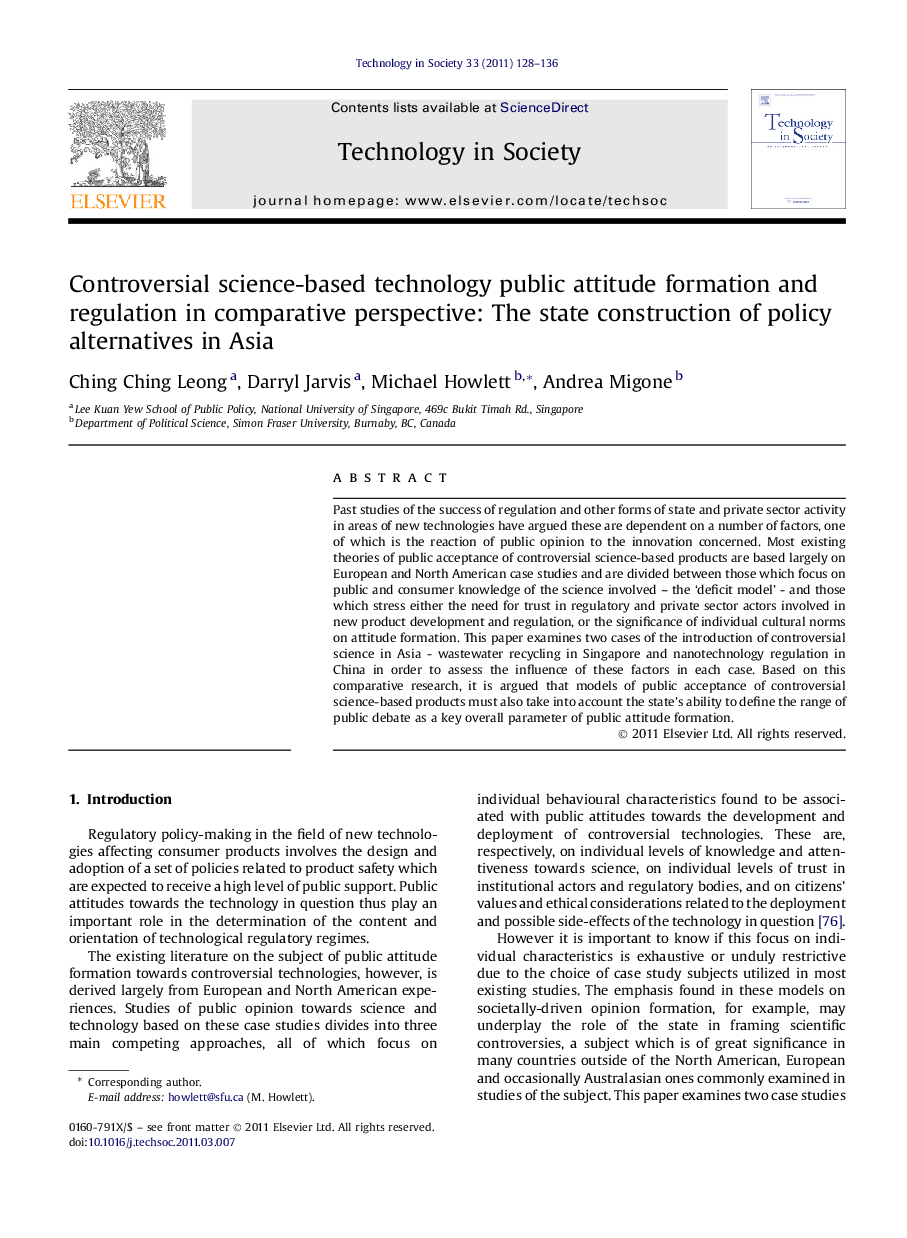| Article ID | Journal | Published Year | Pages | File Type |
|---|---|---|---|---|
| 375231 | Technology in Society | 2011 | 9 Pages |
Past studies of the success of regulation and other forms of state and private sector activity in areas of new technologies have argued these are dependent on a number of factors, one of which is the reaction of public opinion to the innovation concerned. Most existing theories of public acceptance of controversial science-based products are based largely on European and North American case studies and are divided between those which focus on public and consumer knowledge of the science involved – the ‘deficit model’ - and those which stress either the need for trust in regulatory and private sector actors involved in new product development and regulation, or the significance of individual cultural norms on attitude formation. This paper examines two cases of the introduction of controversial science in Asia - wastewater recycling in Singapore and nanotechnology regulation in China in order to assess the influence of these factors in each case. Based on this comparative research, it is argued that models of public acceptance of controversial science-based products must also take into account the state’s ability to define the range of public debate as a key overall parameter of public attitude formation.
